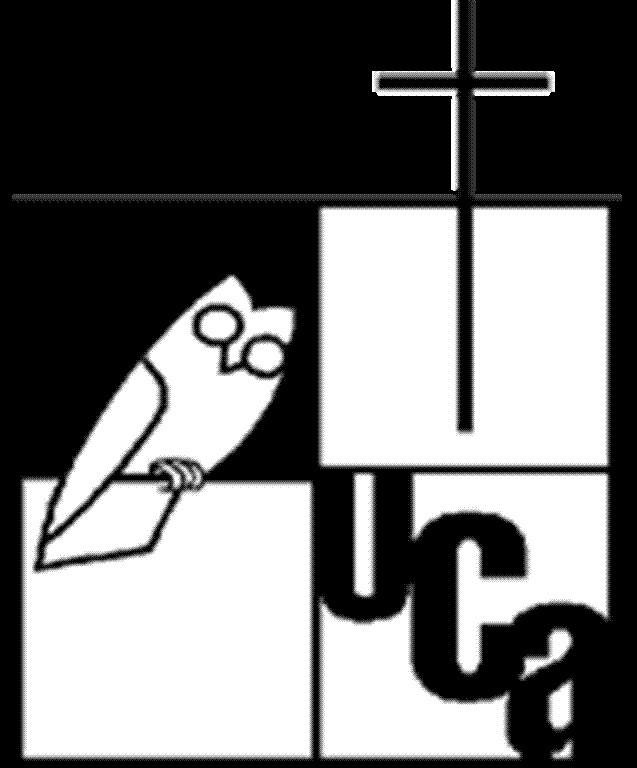University of Central America
 In February 2009 and again in July 2009, the University of Central America (known in Spanish as La Universidad Centroamericana "José Simeón Cañas", or "La UCA") hosted Richard Hein as an Invited Professor of Law at its School of Law located in San Salvador, El Salvador. The purpose of the invitation was the introduction to the students of the Diplomate Course in Oral Trial Advocacy to oral trial techniques, such as the the proper way to lay a foundation for the introduction of evidence, cross-examination techniques, and objections at trial.
In February 2009 and again in July 2009, the University of Central America (known in Spanish as La Universidad Centroamericana "José Simeón Cañas", or "La UCA") hosted Richard Hein as an Invited Professor of Law at its School of Law located in San Salvador, El Salvador. The purpose of the invitation was the introduction to the students of the Diplomate Course in Oral Trial Advocacy to oral trial techniques, such as the the proper way to lay a foundation for the introduction of evidence, cross-examination techniques, and objections at trial.
New Civil and Commercial Procedure Code in El Salvador
The reason for the Diplomate Course at the University of Central America was the prospective entry in effect of El Salvador's new Code of Procedure for Civil and Commercial cases (Código Procesal Civil y Mercantil de El Salvador) in January 2010. The "students" in this Diplomate Course were actually Salvadoran judges, practicing attorneys and goverment functionaries who will be implementing El Salvador's new Code of Civil and Commercial Procedure. The Courses were entirely in Spanish.
This new Code of Civil and Commercial Procedure was to replace the old Code of Civil Procedure which had been in effect since 1881 (el Código de Procedimientos Civiles de 1881) which El Salvador essentially inherited from the Spanish Law of Trial Procedure of 1855 (Ley de Enjuiciamiento Civil Española de 1855). Two of the five members of the Drafting Committee fr the new code were adjunct professors at the University of Central America, Salvador Enrique Anaya-Barraza, who is an attorney in private practice in San Salvador, and Manuel Arturo Montecino-Giralt, who was the Clerk of El Salvador's Constitutional Supreme Court at the time, and is now the Legal Advisor to the Secretary of Foreign Affairs of El Salvador, Hugo Martinez.
Involvement with Legal Reforms in Latin and Central America
This entry into law of El Salvador's New Civil Procedure Code marked a watershed moment in Latin American Law, since it introduced the concepts or orality, transparency, and adversarial proceedings (as opposed to inquisitorial procedings) into the Civil and Commercial areas of Law. While oral adversarial proceedings have been a mainstay of Common Law jurisdictions for centuries, Civil Law jurisdictions such as El Salvador (and most of the rest of Latin America which also inherited their Procedure from Spain), have been entrenched since their inception in written proceedings for Civil and Commercial cases.
This concept of having a trial based solely on written submissions to the Court may be somewhat akin to the practice of Summary Judgment in the United States, which can dispose of certain cases in the event of little or no dispute between the parties as to the facts. But to have all cases disposed of with no opportunity to have live witnesses in Court, with the opportunity to confront the witnesses through cross-examination would be, frankly, alien to most litigators in the United States.
In any event, El Salvador, the smallest country in Central America, has with this new Code now placed itself on the breaking front of a new wave of legal reform which is just beginning in Latin America. It is one of just a handful of Latin American jurisdictions which have moved into a new world, and which should serve to bring a remarkable transparency to legal proceedings and speed up dramatically the resolution of business and commercial disputes in that country, which, in turn, should serve for a catalyst to foreign direct investment as the trustworthiness of El Salvador's legal infrastructure is heightened in a very open and encouraging way.
Rule of Law Iniative of the American Bar Association
This type of legal reform is exactly the type of reform which the American Bar Association's Rule of Law Initiative is trying to inspire in many other jurisdictions across the globe. See their website for more information. Mr. Hein was pleased and honored to be able to be a small part of this important and historic moment in the history of El Salvador as a free nation, and hopes to return to El Salvador in the future and to the University of Central America for future engagements to assist in the continued success of El Salvador.
Below: Attorney Hein with some of his students at the University of Central America School of Law
San Salvador, El Salvador
July 2009



